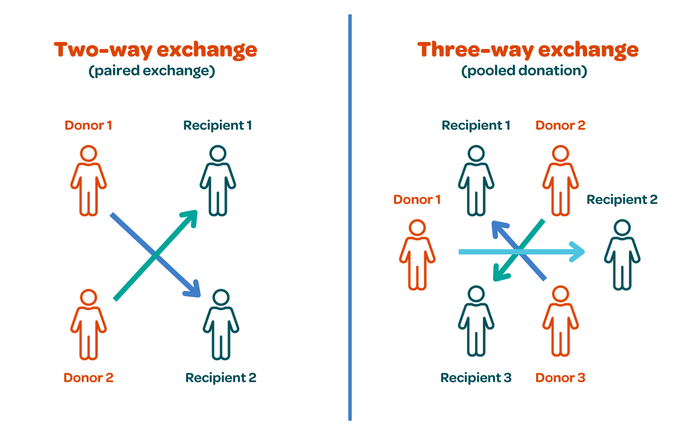If a living donor has offered to donate their kidney to you, you may be told that you are incompatible with each other.
The paired/pooled donation scheme allows you and your donor to “swap” kidneys with another pair of donors and recipients in order to receive a more compatible kidney.
Paired/pooled donation is usually the best option to go for if you are not a match with your donor, as it means that you are more likely to receive a more compatible transplant from the swap.
Any donor and recipient pair are eligible for the paired/pooled scheme as part of the UK Living Kidney Sharing Scheme (UKLKSS).
The scheme allows you and your donor to be matched with another pair of donors and recipients eligible for the scheme, in order to “swap” kidneys, so that you both have a higher chance of receiving a successful transplant.
The paired scheme refers to a two-way exchange, where two donor-recipient pairs “swap” kidneys.
The pooled scheme refers to a three-way exchange, where three donor-recipient pairs “swap” kidneys.

How does the pooled/paired system work?
You will have to complete some assessments before being registered in the UKLKSS as a donor-recipient pair.
Four times a year, NHS Blood and Transplant will perform a ‘matching run’ between all the donor-recipient pairs signed up to the scheme. This is to try and work out the best combination of potential transplants.
If you and your donor are chosen, you and the other donor-recipient pair(s) will be tested to make sure the kidneys are compatible.
Once the two/three pairs are approved, you transplant teams will start to organise the process of transplantation. Your operation will usually take place in your local transplant centre and the kidneys will travel from the transplant centres involved.
Read Yvette's experience of the pooled/paired kidney donation scheme.